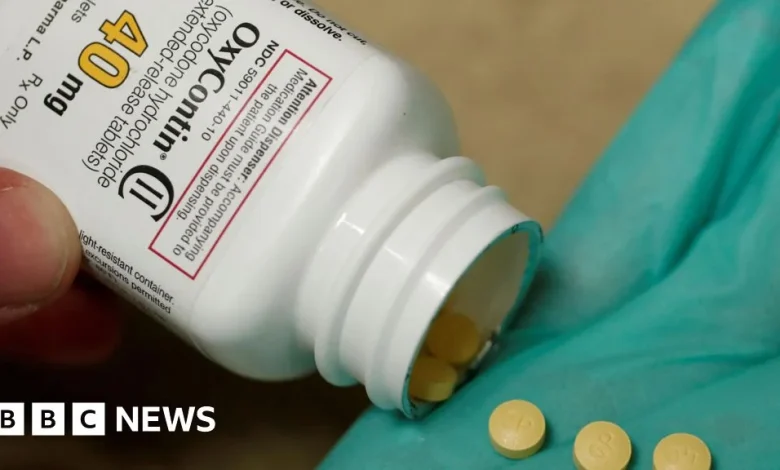Bankruptcy judge green lights $7.4bn Purdue Pharma settlement

A bankruptcy judge on Friday said he would sign off on a deal that forces Purdue Pharma and its billionaire owners to pay out $7.4bn (£5.6bn) over their role in the US opioid crisis.
Approval of the plan, which was first presented in January, is expected to bring to an end a torturous legal effort to hold the OxyContin-maker and its owners, the Sackler family, to account and finally release long-sought funding for people struggling with addiction.
Purdue filed for bankruptcy protection in 2019, as it faced thousands of lawsuits accusing it of fuelling the opioid epidemic.
The settlement marks an increase of more than $1bn from a previous deal, which the US Supreme Court rejected last year.
“Today cements the end of a long chapter, and brings us very near to the end of the book for Purdue,” Steve Miller, chairman of the Purdue board, said in a statement on Friday.
The restructuring plan, he said, “unlocks billions in recoveries and significant non-monetary benefits”.
The deal requires the Sacklers to relinquish ownership of the company. A nonprofit called Knoa Pharma will take its place as a “purpose-driven company with the mission to address the opioid crisis”, Mr Miller said.
Purdue became a household name in the US as the maker and promoter of OxyContin, a prescription painkiller that often served as an entryway into drugs like heroin.
The medication has been blamed for supercharging the deadly opioid crisis in America, which has been linked to 900,000 deaths in the US since 1999.
In thousands of lawsuits, Purdue and members of the Sackler family were later accused of aggressively marketing OxyContin, while misleading doctors and patients over its addiction and overdose risks.
Purdue pleaded guilty in 2020 in a separate criminal case brought by the Department of Justice.
But that agreement did not address lawsuits brought by local, state, Native American tribal governments and others, which had helped to precipitate the bankruptcy.
A previous settlement, which the Supreme Court struck down last year, would have shielded members of the Sackler family from future civil lawsuits over their role in fuelling the opioid crisis.
The nation’s top court ruled that granting such protections to the Sacklers, who did not themselves declare bankruptcy, was not authorised under law. The latest $7.4bn deal does not grant the Sacklers immunity from future opioid-related lawsuits.
Members of the family are now poised to contribute between $6.5bn and $7bn as part of the agreement. They have long denied wrongdoing.
Some individuals voiced objections to the deal during an earlier bankruptcy hearing, arguing it did not go far enough to compensate victims directly. Individual victims are expected to receive up to $865mn.
But the settlement garnered overwhelming support from government groups and personal injury victims. More than 99% of creditors voted in favor of the bankruptcy restructuring plan, Purdue said in October.
State and local governments will receive most of the settlement money. Many have said the agreement would fund support for opioid addiction treatment and prevention across the US.
“By holding Purdue Pharma and the Sackler family accountable for their role in fueling the opioid epidemic, we’re bringing much-needed funds for addiction treatment, prevention, and recovery to those impacted by this crisis,” California Attorney General Rob Bonta said in a statement in June, when 55 attorneys general agreed to sign on to the settlement.





